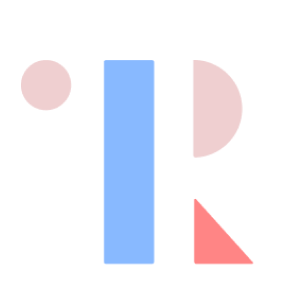An open source multi cloud platform for collaborative IaC originally developed by Hootsuite.

An open source multi cloud platform for collaborative IaC originally developed by Hootsuite.
Atlantis, an open source platform initially developed by Hootsuite, is an innovative multicloud solution to enhance and automate Infrastructure as Code (IaC) deployment. It integrates seamlessly with version control systems such as GitHub, GitLab or Bitbucket, acting as an automation server for Terraform workflows using pull requests. This platform offers robust tools for managing infrastructure changes across diverse cloud providers, simplifying collaboration and accelerating delivery.
Critical features of Atlantis include automated plan and apply functions, which streamline the adoption and enforcement of infrastructure changes. Policy-driven controls ensure adherence to compliance standards, reducing risk and enhancing security. Atlantis also provides the flexibility to configure different Terraform configurations for distinct branches or environments, accommodating various workflows and pipelines across an organization. It supports multiple Terraform versions, allowing organizations to work with other versions simultaneously. Furthermore, Atlantis facilitates the isolated execution of Terraform commands, bolstering security and preventing unintended cross-contamination between tasks.
Atlantis's powerful features and flexible configurations suite ensures efficient, secure and compliant IaC deployment, promoting a smooth DevOps experience.
Want to know whether Atlantis is the right fit for your use case? Get a detailed analysis of your requirements and a vendor comparison in 2-3 minutes.
Container visualization tools in platform engineering provide a graphical depiction of the cluster (e.g., Kubernetes cluster) and its resources. These tools help platform engineering teams gain insights into the cluster's health, resource allocation, and application deployments, making it easier to understand and manage the complex interactions within container environments. By visualizing the container environment, platform engineers can make informed decisions and effectively operate and maintain their platforms.
In platform engineering, a service catalog is essential for enhancing collaboration, promoting reuse, and streamlining the consumption of services and APIs. It offers a comprehensive, organized overview of platform services, enabling users to discover, understand, and utilize these services efficiently.
The concept of "Platform as a Product" focuses on considering the platform itself as a product, delivering value to its users. It involves applying product management principles to the platform's development and management. Adopting this mindset enables platform engineering teams to create platforms that provide value, drive innovation, and cultivate a thriving ecosystem. This approach ensures the platform aligns with user needs, is user-friendly, and evolves with changing needs and technological advances.
Platform orchestration is indispensable for maintaining scalability, reliability, and efficiency within complex platform architectures. It automates deployment and management tasks, diminishes manual labor, and ensures consistent operations across the platform. As a vital use case in platform engineering, platform orchestration manages and coordinates the deployment, scaling, and lifecycle of services and applications on the platform.
In the context of platform engineering, automation is pivotal for efficiently implementing the GitOps workflow. Integrating automation into the GitOps workflow allows organizations to achieve quicker, more reliable deployments, reduce human errors, ensure environment consistency, and enhance overall efficiency and scalability of their platform operations.
An internal developer portal, often referred to as an internal API portal or developer hub, acts as a central resource for developers within an organization. It provides a self-service environment for developers to discover and utilize internal APIs, tools, documentation, and resources for application and integration development. This portal centralizes knowledge and resources, encourages best practices, and nurtures a culture of innovation and continuous improvement.
We’ve listed the products and solutions that are commonly to Atlantis below.
A low-code automation platform for infrastructure provisioning with built-in security measures.


Resourcely is a configuration engine that provides a self-service and easy way of deploying and testing guardrails for engineers.
An open source platform for unified, standardized management of backend services and tools.
An internal developer portal for building a service/software catalog and enabling self-service.
A cloud native control plane framework for orchestrating applications and infrastructure.
An internal developer platform for deploying self-service applications and infrastructure from reusable templates.
Harness IDP streamlines software management, automates service onboarding, centralizes documentation, and integrates with plugins.
A cloud native app protection and observability platform for containers and Kubernetes.
A cloud orchestration platform for multi-cloud environments, enabling automation and DevOps integration.
Cortex is an Internal Developer Portal (IDP) designed to streamline and enhance the efficiency of engineering teams.
A multiservice platform for infrastructure automation, security, and multicloud networking.
Compare products in Platform Engineering head-to-head across various criteria such as price, features, user interface, support, ect.